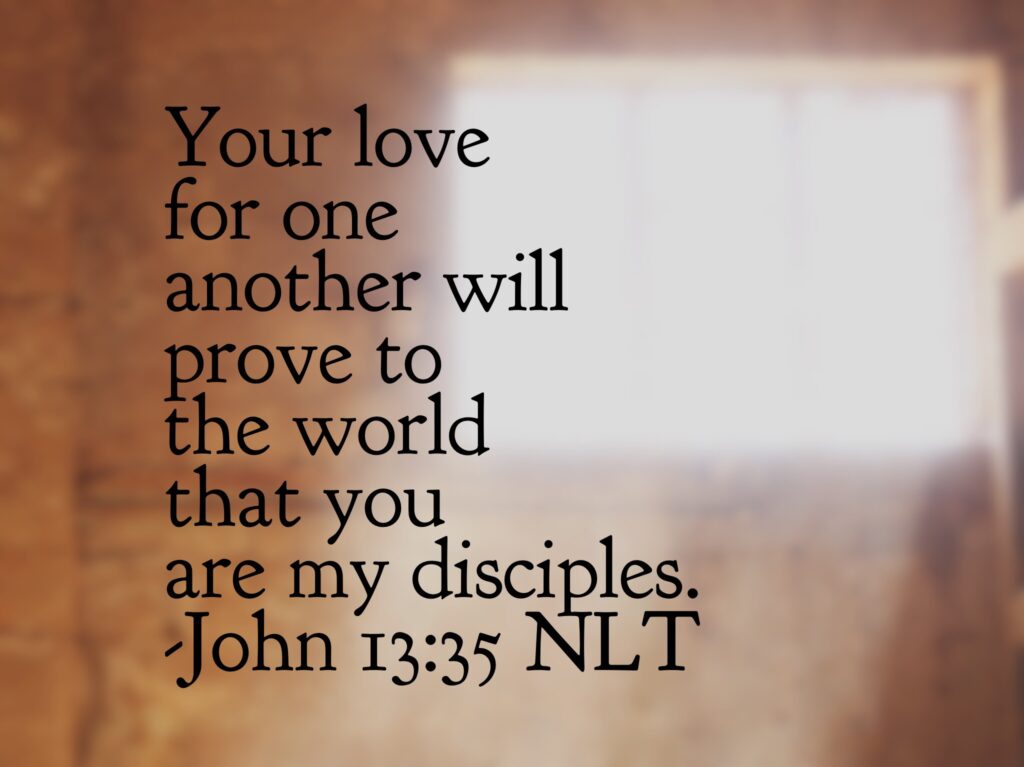The Opportunity Nesting Inside Every Disagreement

Instead of allowing differences to divide us, we can take advantage of the opportunity nesting inside almost every disagreement that comes our way. An opportunity to build stronger relationships. Even with folks who hold views and opinions vastly different from our own.
When I was a girl, I would cringe when my mother found my sister and me arguing. Not because we would get into any grave trouble (usually.) But because Mom would always insist that we talk out our differences. Respectfully, with no shouting or interrupting. Taking whatever time we needed to hear each other out. She would make us keep talking until we were ready to apologize. Then, as if the torture wasn’t already enough, Mom would insist that we hug and tell each other, “I love you.” (Which truthfully didn’t feel like torture at all by that point.)

You see Mom wasn’t content with my sister and me merely tolerating one another. It wasn’t enough for us to “agree to disagree.” She always led us straight through the whole process – from listening to compromising to apologizing for harsh words spoken. All the way to expressing our restored love for each other. Even if we never settled on who was right and who was wrong. Because Mom knew that when sisters disagree, an opportunity presents itself. Either their bond can be damaged, or it can grow stronger. It just depends on how the disagreement is handled.
There’s an opportunity nesting inside almost every disagreement.
Maybe you’re like me and wish there was a mom in charge of the world today. Someone stepping in to make sure voices stay respectful. Allowing both sides to speak without interruption. Ensuring an outcome of mutual care and consideration. Yep, that would be great. But with no such maternal referee in sight, there are some things we can do differently the next time we find ourselves on opposite sides of an issue with someone. And it starts with recognizing an opportunity to move beyond “agreeing to disagree.”
It’s not enough for us to merely tolerate people we don’t agree with.
Jesus didn’t teach us to tolerate or ignore the folks who stand on the other side of issues we care deeply about. Smiling politely and nodding while we tune out whatever they have to say. Steering the conversation safely back to nothing more important than the current weather report and plans for the weekend. That’s not enough for Him.
Jesus calls us to love one another.
While “us against them” is the way of the world, it doesn’t have to be the way we run ours. Yes, there may be some disagreements that leave us feeling like we will never be able to get along. But instead of reflecting back like a mirror what we see and hear around us – the shouting, demanding, shaming, tuning out or name-calling, we can provide a window to a different way of doing things. Here’s how.
Set a different goal.
Changing another person’s mind can’t be our primary focus if we want to handle conflict differently. Instead, we’ve got to switch our goal away from winning an argument to one of building a relationship. Our desire to express Christ’s love must outweigh our need to prove a point.
And that will require us to practice humility and respect. Humility to recognize that our views – even the ones we hold on to most tightly – are formed from our experiences. And our experiences are not the final say on any matter. So while we continue to hold our experiences with the respect they deserve, we can give the same respect to someone with different experiences. And we can ask them to share their stories, so we might begin to understand their perspective.
Listen carefully.
What most people want is to be heard. So what might happen if we made up our minds to talk less and listen more? What if we approached our next disagreement with curiosity about different opinions and ideas? Not trying to come up with arguments, answers, or counterpoints. But listening carefully to the stories spilling from the hearts of those around us. If that feels risky or uncomfortable, rest assured. Listening doesn’t mean we must agree with what we hear, it simply means that we care enough about someone to get to know them better.

When we take the time to hear one another’s stories, we might be surprised to find we share more common ground than we thought. Like the deep and unshakeable love we have for our families. The concern we share for their future. And the faith we have in a powerful, loving God.
Believe love is possible.
Just as my mom parented from the belief that tolerating one another was not enough – that only love would do – we must stand with the same conviction. God’s word would not tell us to love one another if it wasn’t possible for us. But how? By asking the Holy Spirit to help us live like we believe it.
Our disagreements become opportunities when we change our goal from winning arguments to building relationships and when we take the time to listen carefully to the stories and experiences of others. Opportunities to show the world that God’s way of loving one another is possible. Even when we disagree.
“You’re familiar with the old written law, ‘Love your friend,’ and its unwritten companion, ‘Hate your enemy.’ I’m challenging that. I’m telling you to love your enemies. Let them bring out the best in you, not the worst. When someone gives you a hard time, respond with the energies of prayer, for then you are working out of your true selves, your God-created selves.” (Matthew 5:43-45 MSG)









So much wisdom here, Jody! Appreciate the clear steps you’ve given, too. We humans often complicate things when there’s no need to.
Thanks, Jill! I always like to know what practical steps I can take next to love others well. That’s why I love your messages, too! Thanks for stopping by.